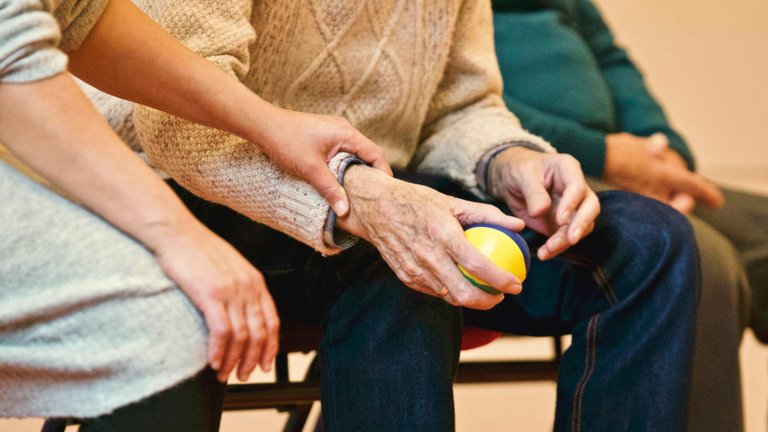
source
In a recent statement, Phyno, a musician, sated that around here in the African society, we do not put our older people in retirement homes. And that is true.
We are a communal society by nature, which is a good thing. Our older people have special positions in different activities to keep them engaged after retirement.
They form an association of their age-grade who are custodians of the cultures and who see to it that the community is run rightly.
They attend burials, marriages, new yam festivals, and other activities, even if they don't directly know the person involved. This keeps them active and engaging with society.
I've had aunties, uncles, and older relatives who have had to live with some younger members of family when they no longer are actively working. Some go on to do little businesses. For others, they are given caregivers to tend to them and just help around.
A whole lot of them sometimes prefer to go back to the village or closer to home where they have more friends and people within their age brackets who they are familiar with. That way, they sort of get to engage in what their mates are.
Unless they become terribly ill, requiring
special medical attention, older people in
Nigeria is always busy. Even politicians borrow them to fill campaign grounds and different meetings.
Have you ever wondered why when you visit the villages, the elderly there, even those above ninety years of age, sometimes look more agile than those who are confined in a space? Have you ever thought that maybe because they kept active, their bodies did not succumb easily to every weakness?
My dad is a retired civil servant, as is my mum. They aren't old, just elderly. However, they always are looking for ways to get busy, and my siblings and I are always telling them about how they shouldn't do that. We try our best to provide all they need to make them comfortable, but it sometimes seem not enough. We, after a series of events, have realized that moving about sort of stirs up their system.
When they grow very old and frail, as much as they may not need our help to function, we could maybe share the responsibilities of taking care of them or hire someone who would.
And not taking them to a nursing home has nothing to do with me not feeling terrible that I dumped or abandoned my parents who toiled all their lives for me and would never have abandoned me no matter the scenario. No, it's not that. It's about doing what's best for them and what is guaranteed to be best for their welfare.
What we have may not be perfect, but I agree with Phyno that, as a society, we involve our older people in many activities that help them avoid being isolated or lonely.
This may be different for others because there could be other factors such as age, ill health, and specific health or something else.
But around here, this communal method of caring for the elderly will always rule supreme

I hope that this was interesting to read. Thanks for stopping by.